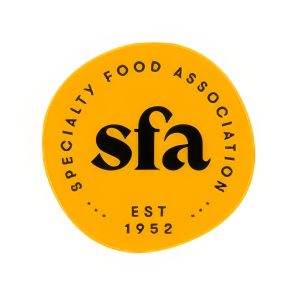Finding and Applying for Culinary Scholarships and Grants
Culinary schools can have a hefty price tag as any educational training opportunity. In addition to tuition costs, students typically have to include living expenses, educational materials, and a great set of knives in the total cost of school—all of which can add up to tens of thousands of dollars per year.
Fortunately, most culinary schools know the costs of higher education. Since they work with an educational process with costs known to exceed those of most public universities, there are a number of grant, loan, and scholarship opportunities available through individual schools.
When combined with online funding databases, there are quite a few resources available to students looking to pay for culinary school.
Start with the School
Your first resource should be the financial aid department at the school of your choice. Most of them are more than willing to help you discover what your options are as far as private and federal funding go.
Most schools will ask you to fill out a FAFSA (Free Application for Federal Student Aid). This form will determine your eligibility for federal funding through grants, loans, and work-study programs. Eligibility is based on your income, your parent’s income (if you are under 23 and unmarried), and the amount of money the school has available.
While these options are a great starting point, they may not be for everyone. Some students don’t qualify for enough student aid to cover their expenses, and the loans require repayment. That’s why scholarships and grants remain among the best ways to pay for school.
How to Find Culinary Scholarships and Grants
Students generally prefer scholarships and grants because they are “free money.” Although you have to meet certain criteria to be eligible, you don’t have to pay them back.
In many cases, scholarships are highly detailed, meaning that you may have to demonstrate a specific income, background, and/or community service in order to even compete for the funds. It all depends on who is offering the money and why.
Many culinary schools have scholarships, which they post on their websites or in the financial aid office. These can be highly competitive since the other students at your school are probably looking to secure the same funding sources as you.
Other great places to look include professional culinary organizations, your high school, libraries, and the Internet. Scholarship boards and companies dedicated to culinary resources offer a great one-stop solution for finding scholarships unique to the field.
Although scholarships are essentially free money, they aren’t easy – you will have to dig deep to find scholarship opportunities relevant to you, your career goals, and even your location. Here are some tips to make your search a little easier:
• Don’t be afraid to ask other students and school alumni about their scholarship successes. Don’t talk dollars and cents – simply ask where they looked for scholarships and what (if anything) they would do differently this time around.
• Consider all scholarships – no matter how small. A $50 scholarship may not seem like it’s worth the effort of applying for, but it is. Four or five of those, and you’ve covered your course materials for at least a quarter.
• Look locally. While online scholarships sites are incredibly valuable as a tool for finding funding sources, they are visited by students all over the country. There may be money available within your own city that is much less flooded with applicants.
• Find press clippings and news releases. Scholarship winners and providers are notorious for announcing their good luck in the newspapers and online. Use these as a way to build up a list of resources to consider.
The Application Process
Applying for scholarships and grants can be a time-consuming process. They all have criteria that need to be met before you can even get your application in the front door. This means that a successful student is a well-organized student.
Although you can create a template scholarship letter (since many of them ask for a letter about you and your dreams for the future), remember to personalize your approach to each application you send out. Fulfill all of the requirements they set out, and do it before the final due date.
It can take months before scholarship and grant committees decide who will receive the final funding, so it’s important not to lose heart if you don’t hear back immediately. Don’t consider a non-response a failure and give up before you’ve even started trying. Instead, continue finding scholarship opportunities and apply for them to the best of your ability.
Getting Ready for School
Ultimately, you should better understand where you stand financially as you enter your culinary education. Between federal grants, possible loans, the scholarships you were awarded, and the financial packages that many schools put together as a way to entice you to sign up for their curriculum, you should have a good idea of what to expect to pay as you enter this new phase in your life.
If you would like to read more articles about entering the culinary world or life in a professional kitchen, be sure to visit Culinary School Resources for articles, school sources, and books to read.
Is A Culinary Career Right For Me?













One Response
My Name is Lebo Moeng, 27 years of age, passionate of food like to spend time in the kitchen. I’m currently looking for culinary school and funds for me to for my studies, my wish is to obtain higher qualification in this and gain more experience. Thank you